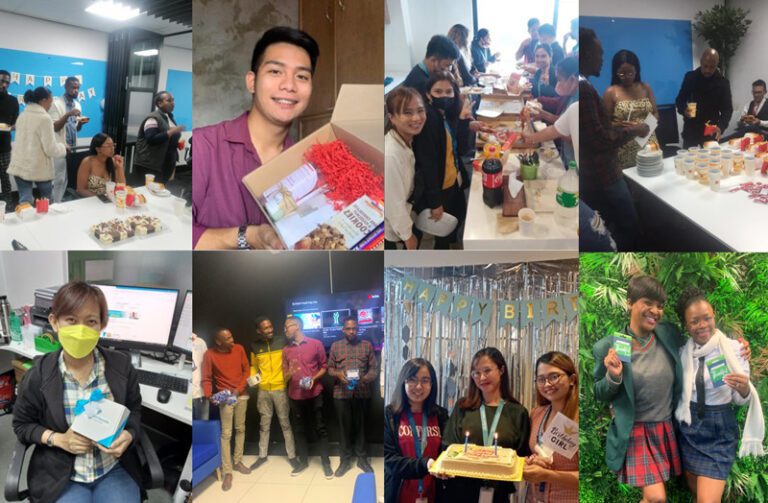A 7-Step Prep Process for Interview Success
Intern Marketing
on
November 14, 2024
A 7-Step Prep Process for Interview Success
When it comes to interviews, most people start preparing too late. This results in high nerves and lower chances of landing the job. Instead of rushing, follow this structured step-by-step approach to ensure you’re ready to shine in any interview.
This method reduces anxiety and positions you as a well-prepared candidate ready to tackle the role with insight and purpose.
1. Interview success Is built on preparation
It’s often said that “luck favours the prepared,” and nowhere is this truer than in interviews. Career expert Sarah Johnston conducted a poll that revealed most candidates spend less than two hours preparing for interviews. Inadequate preparation leads to heightened anxiety and reduces your odds of success. The solution? Start early and make thorough preparation part of your interview strategy.
Allocating more time to practice helps you anticipate difficult questions and refine your answers. This ultimately increases your chances of landing the role. Setting aside time daily or weekly to review the job description, the company’s recent news, and the role’s expectations builds confidence. This practice also helps you avoid last-minute panic.
2. Know your interviewer – What you say matters as much as how you say it
a. Understand the employer’s pain points
b. Map your skills to their needs
c. Emphasise relevant achievements
3. Recognise the pattern in early interviews
Think back to your first-round interviews. Chances are, many of the questions were similar. Identifying this pattern is a game-changer: if you can anticipate the core questions that get asked in 90% of early interviews, you’ll be better prepared to respond with confidence and precision.
While every role is unique, there are fundamental questions interviewers ask to gauge personality, commitment, and fit. Once you identify these standard questions, you can prepare structured answers that reflect your personality and skills.

4. Build a list of “fundamental questions”
To make this preparation process more effective, start by listing the questions that tend to come up in nearly every interview. Here are five commonly asked ones:
- Tell me about yourself.
- Why do you want to work here?
- What are your strengths & weaknesses?
- Describe a time you overcame a challenge.
- Where do you see yourself in 5 years?
Use these as a foundation and add any other questions relevant to your industry or position. For instance, if you’re in a technical field, you might add a question about specific technical skills, while creative fields might involve discussing past projects or innovative ideas.
5. Draft your answers
For each question, create a rough answer. Use a structured framework to make your responses strong, engaging, and relevant:
- Reference the company’s goals or challenges. Begin by aligning your response with the specific goals or challenges the company is facing.
- Establish the stakes of your example. Clarify why your example matters by outlining the importance or impact of the situation.
- Describe your problem-solving process. Walk through the steps you took to address the issue, showcasing your approach and critical thinking.
- Share real, measurable results. Conclude with the concrete outcomes you achieved, using numbers or specific accomplishments to highlight your impact.
This approach provides a complete response and positions you as someone who can help the organisation achieve its goals. To make your answers even more compelling, go over them a few times and make revisions. A refined answer will convey confidence and knowledge.
6. Commit your answers to memory
Set aside two or three-time blocks throughout the week to practice memorising your responses. Start by reading through your answers, then gradually remove any notes or aids. By internalising your responses, you’ll be able to communicate effectively—even under pressure.
While memorising can improve recall, it’s essential to avoid sounding overly rehearsed or robotic. Keep your answers conversational, and adapt them slightly for each interview to keep them relevant and engaging. Practice rephrasing parts of your response so you can answer in a natural tone without losing focus.
7. Practice your delivery
Ready to Impress?
This preparation process gives you several key advantages:
- You start early, avoiding last-minute stress.
- You craft well-refined stories to handle a variety of questions.
- You develop answers you can recall confidently, even in high-pressure situations.
- You’re poised to deliver those answers fluently, boosting your impact on interviewers.
Additionally, remember to put yourself in the shoes of the employer. Think about the problems they need to solve, the skills and experiences that would help you succeed in the role, and how this position fits into your career goals. By acting early and thoughtfully, you’re preparing for the interview and setting the foundation for a promising start with the company. And while every interview is unique, the process of preparing yourself in this way will build confidence that extends beyond any one opportunity.
About the Leader

Clara Turner
Global Head of Recruitment
Clara Turner is Staff Domain’s Global Head of Recruitment. With a rich background in end-to-end recruitment and over a decade of experience under her belt, Clara has an excellent track record, specialising in staffing for offshore outsourcing, recruitment process outsourcing (RPO), client, account and team management, and global recruitment across diverse regions including the US, LATAM, Oceania, Asia, and Europe.
Clara has been at the forefront of the recruitment industry, catering to the evolving needs of businesses worldwide. She understands the importance of finding the right talent to drive business success, which is why she leverages a robust network and industry insights to identify top-tier candidates efficiently and effectively.
Share this post

















